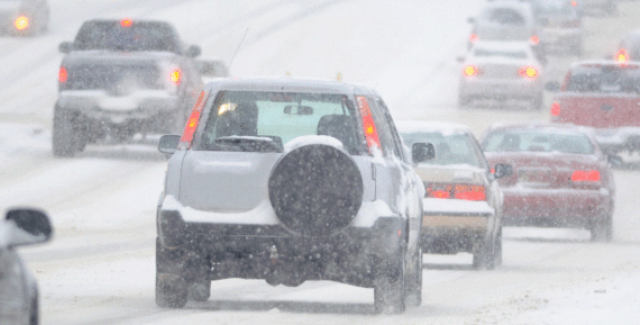Know what to do when winter storms hit.
Although our winter season is limited in the Mid-South, we still run the risk for wintry weather; particularly, icy conditions. Even if temperatures rise quickly after a winter storm, damage and power outages may last for several days or even weeks.
It’s important to keep up to date on weather reports and predictions. In winter, weather forecasts can sometimes provide you with several days’ notice. Remember, even if there’s a chance the storm might miss your community, it’s always better to be prepared.
Five simple steps:
- Be sure that your family knows how to find out about cancellations, closings, delays, and transit information.
- Make sure you have plenty of nonperishable food that doesn’t need to be cooked at home as well as extra water.
- Keep blankets handy in case of burst pipes or power loss.
- Protect outside spigots from freezing by using covers or by turning off the water source.
- Drip all inside faucets and open cabinet doors to circulate heat.
Other steps:
- It is always a good idea to check over your home before winter arrives. Make sure the attic is well ventilated and that the attic floor is well insulated. This will help keep snow or ice from melting and refreezing.
- Check prescriptions and first aid kit materials and replenish any batteries for flashlights and radios.
- Keep rock salt on hand (kitty litter also will work for traction) to help with icy walkways.
- Make sure your vehicle’s gas tank is near full at all times to prevent ice in the tank and fuel lines.
- Check over all exposed pipes (in the attic or basement) and insulate if necessary. Seal cracks and holes in outside walls and foundations near water pipes with appropriate caulking.
- Add an ice scraper, blanket and some non-perishable snacks to your car’s emergency kit. Make sure you have booster cables, too.
- Be sure your tires have enough tread. All-weather radials are usually adequate for most conditions.
- Make sure your car has adequate antifreeze.
- If you plan to use a fireplace or wood stove for emergency heating, have your chimney or flue inspected each year. Also, if you plan to use a fireplace, wood stove or kerosene heater, install a smoke detector and a battery-powered carbon monoxide detector near the area to be heated. Test them monthly.
- If you are planning on using a gas-powered generator, check your fuel supply. NEVER run a generator out of garage or in the house.
- If you know of a neighbor, friend or relative who is housebound or elderly, plan to check on them. The ability to feel a change in temperature decreases with age, and the elderly are more likely to have health problems caused by the cold.
- Bring all outdoor pets inside or to a warmer area, and be sure to provide pets with plenty of fresh, unfrozen drinking water.
After a storm:
- If pipes should freeze, thaw them gently with warm air from an electric hair dryer. If you are unable to thaw the pipes due to power outage, or if the pipes have broken, report it to MLG&W. Use bottled water or get water from a neighbor’s house. In an emergency, you also can melt snow.
- In case of a power outage, do not use candles for risk of fire. Do not use a gas stove for heating purposes. If you cannot safely get to another location, stay inside, dress in warm layers and use blankets to help with heat loss.
- Again, NEVER run a generator out of garage or in the house.






